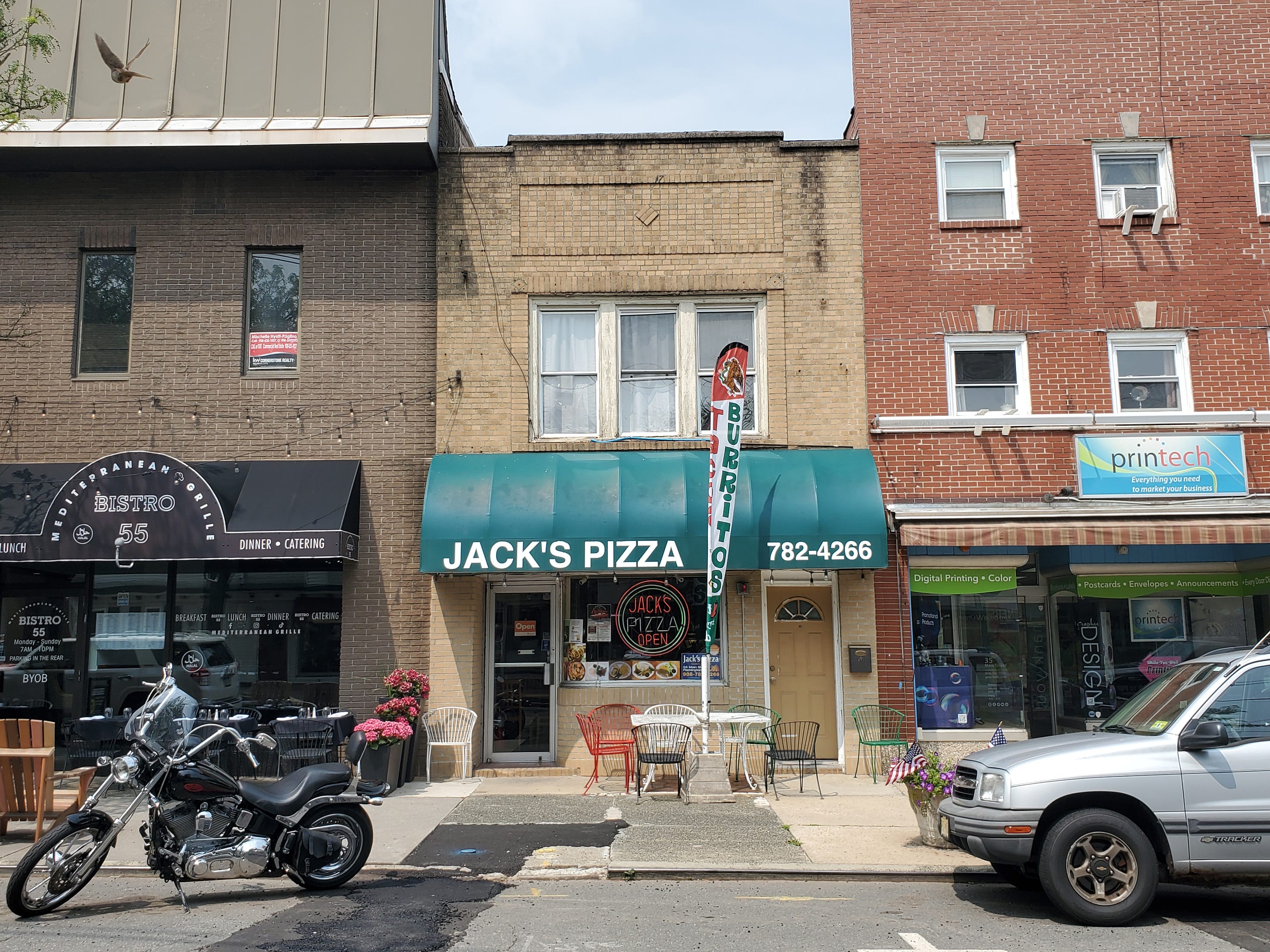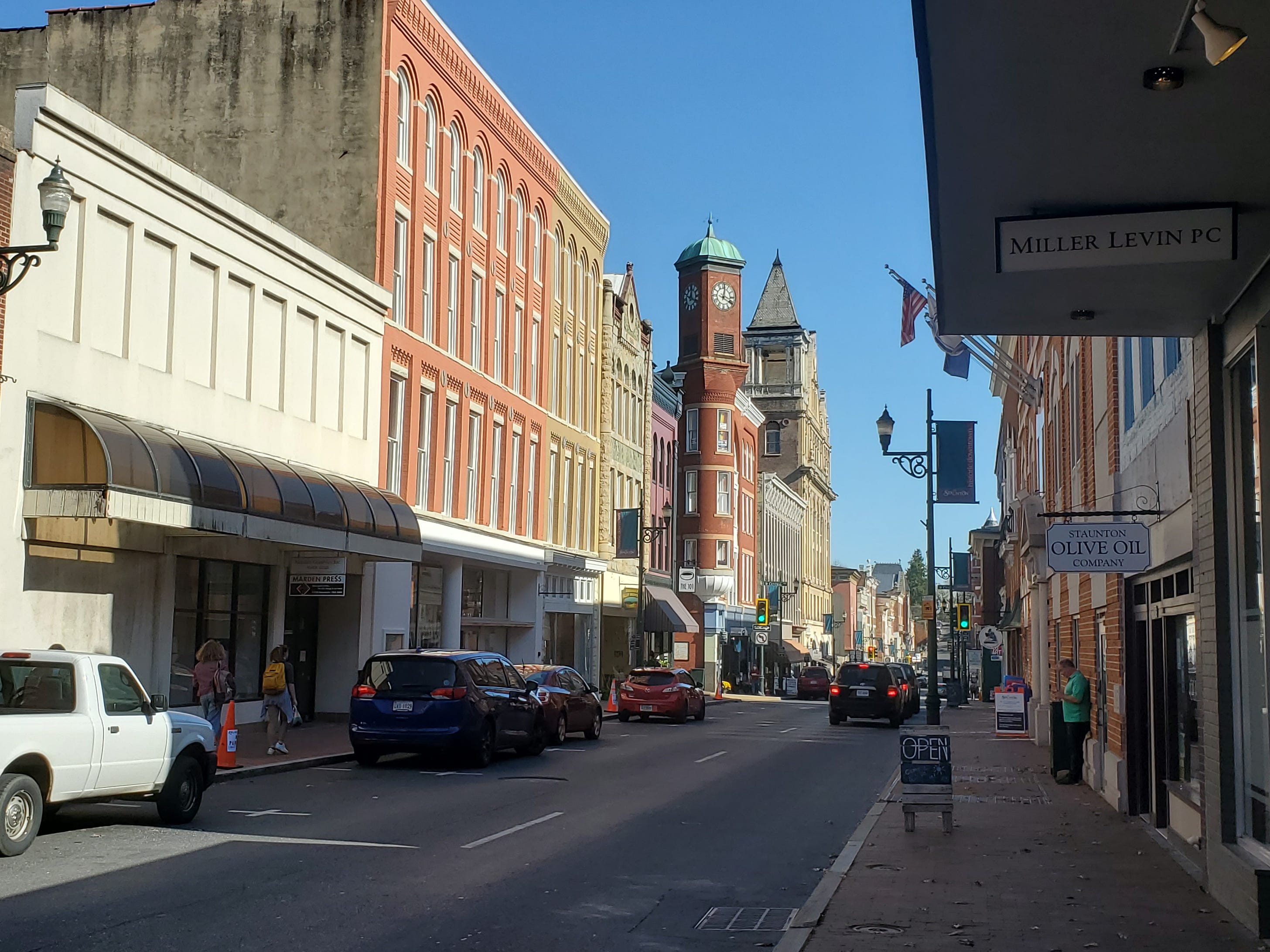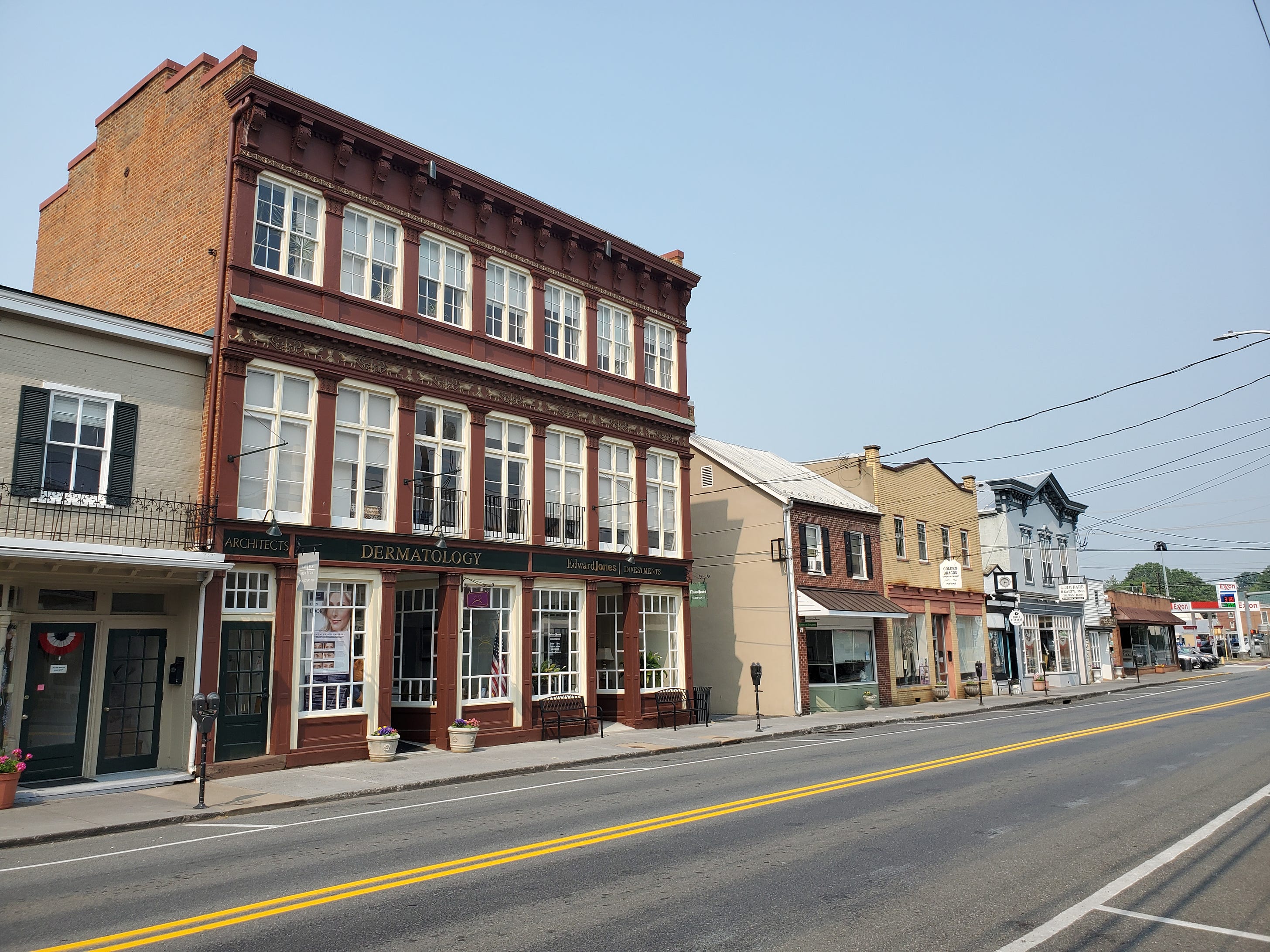The Deleted Scenes - Not In My Small Town
I didn’t know, and didn’t want to know, who Jason Aldean is. But it was impossible not to hear the buzz about his recent song “Try That In A Small Town.” I’m the small towns guy, and I had to write something, because I didn’t want Aldean to give small towns a bad name. So he sings this:
Then there’s the bit about how he has a gun, which they might be able to confiscate in the city, and then this:
None of the activities mentioned are nice, of course. But one of them—burning the flag—is actually not a crime. I don’t like flag-burning, but the Supreme Court determined in 1989 that it was covered by the First Amendment. Has the draft of this song been kicking around since before Texas v. Johnson? Or does Aldean believe it’s appropriate to punish free expression with a punch? Somebody should ask him what he thinks about punching Nazis? The song was released in May, but the music video was released in July, which sparked most of the controversy. In particular, the video depicts what Aldean claimed were real news clips of urban violence. That was the heart of the controversy—the (barely) subtext of vigilante violence as an appropriate response to urban unrest. But apparently, some of the clips were stock footage, or even footage of protests in other countries. If the cowboy boot fits, wear it. Asked about the negative reactions, Aldean said, in more words, I didn’t say what I said. The song just does not resemble Aldean’s characterization of it:
This is a lovely sentiment. It’s too bad it isn’t what the song is about. But the real point is deeper. This is what the lyrics of the song suggest: small towns are not real places with real people, but blank canvases—mere backdrops against which to perform grievance and reactionary politics. They are receptacles for resentments. Their political-cultural significance outweighs any actual characteristic they have. “The town” is different from “the city” because neither the town nor the city is an actual thing on the ground with a history. To my Northeastern (or, as it is, Yankee) eyes, there is no real difference between what we call a town and a city, except size. A single urban neighborhood is almost indistinguishable from a small town. The built pattern of a classic small town is deeply urban. Forget the anti-urban tautology that says “Cities are bad, so nice places can’t be cities.” Tell me these are not tiny cities. Two of them, by the way, are in Virginia. In a previous piece, I wrote:
Small-towners are really rural urbanites. Nonetheless, of course, there are places that we can recognize as “towns.” Did Aldean grow up in one? Oops, he grew up in Macon, Georgia, a city of over 100,000 people. Does he live in one now? Oops, he lives in Nashville (no surprise), having recently moved there from his “massive Tennessee mansion.” The kind of intellectually dishonest nonsense that is “Try That In A Small Town” is hardly unique to Aldean, though he’s done it before:
None of this bears any resemblance to reality. Plenty of big-city people love the country and small towns. Many, of course, have left the city for such places. Many businesses out in the countryside surrounding major metro areas rely on urban money and customers. When we have proper cities and a proper country, we have beautiful regions that work together. The odd thing out here is suburban sprawl. For me this all comes back to land use. It comes back to what these places actually are, and how and why they were built. But Aldean isn’t thinking about land use when he sings about small towns. He’s thinking about politics. Berkeley or Burlington are some other kind of place. The small town is any place that Aldean politically approves of. It’s not a place; it’s an idea. This is not art, it is not music, it is hardly entertainment. It’s essentially a political ideology concealed as music; quasi-conspiracy-theories about crime and urbanization and the left with a twang and a fiddle. Well, this is how ordinary middle-Americans feel. You’re not saying American cities are doing great, are you? You just don’t get it! That’s what some of the responses to the critiques of Aldean’s song sound like. There’s a lot of talking past each other. I saw a tweet from a conservative writer in Appalachia, whose work I actually find quite lovely, and she said something to the effect of “This song is almost number one, the chattering class doesn’t get it.” The thing is, I’m fairly sure she’d also agree with my appreciation of small towns as tiny, low-intensity urban communities and, ideally, somewhat self-sufficient economies. I don’t entirely understand where the disagreement is, to be honest. What I’ll say is that urban crime is a problem, and some urbanists are too cavalier about it. I understand that there are real cultural and lifestyle differences between (often) conservative small towns and (often) liberal big cities. And it’s true that American cities are rather poor by global developed-world standards. I can even understand this lingering feeling that “the left” hectored people for not wearing masks while making excuses for urban riots, or some version of this. That’s a narrative, not a fact, but it’s one of those narratives that explains some things because it’s widely held. And all of that is on top of the longstanding tropes about city people and flyover country and all that. I get that. What I don’t get is identifying your place and your people not with their virtues, but with what they’re willing to do to people they don’t like. I don’t get abstracting their physicality, their heritage, their placeness. Look—you can sit in a mansion and croon about how small towns are distinguished by their resentful cultural politics, and how cities are defined by their problems. And you can, apparently, make money doing it. But you can’t tell me it’s true. I did grow up in—a few minutes outside, technically—a small town. Before my time, we had supermarkets and all kinds of everyday businesses right on Main Street. I found an old newspaper clipping from the 1920s or 1930s about how everybody in the area came to town for everything they needed. We had a hotel and a train station. By the time I was a kid, places like this were little more than bedroom communities. But their history—built, and human—is that of a small working city. Politically, it’s a mixed place. Some people supercommute to the city, many work locally. I don’t think people think very much about whether they are town or country or city people. So in a place like that—a real, existing, small town—I’m not sure your phony small-town spiel is gonna fly. Related Reading: Suburbia Was a Housing Program Thank you for reading! Please consider upgrading to a paid subscription to help support this newsletter. You’ll get a weekly subscribers-only post, plus full access to the archive: over 700 posts and growing. And you’ll help ensure more material like this! You're currently a free subscriber to The Deleted Scenes. For the full experience, upgrade your subscription. |
Older messages
Talk Is Cheep
Saturday, July 29, 2023
Thoughts on Twitter's decline and using less social media
New and Old #120
Friday, July 28, 2023
Friday roundup and commentary
Read the Menu, See Your Town
Thursday, July 27, 2023
Seeing old things with new eyes
Postage-Stamp Post Office
Wednesday, July 26, 2023
What Do You Think You're Looking At? #120
Night City
Tuesday, July 25, 2023
Walking one of Montreal's pedestrianized corridors
You Might Also Like
*This* Is How To Wear Skinny Jeans Like A Fashion Girl In 2025
Wednesday, March 12, 2025
The revival is here. The Zoe Report Daily The Zoe Report 3.11.2025 This Is How To Wear Skinny Jeans Like A Fashion Girl In 2025 (Style) This Is How To Wear Skinny Jeans Like A Fashion Girl In 2025 The
The Best Thing: March 11, 2025
Tuesday, March 11, 2025
The Best Thing is our weekly discussion thread where we share the one thing that we read, listened to, watched, did, or otherwise enjoyed recent… ͏ ͏ ͏ ͏ ͏ ͏ ͏ ͏ ͏ ͏ ͏ ͏ ͏ ͏ ͏ ͏ ͏ ͏ ͏ ͏ ͏ ͏ ͏ ͏ ͏ ͏ ͏ ͏
The Most Groundbreaking Beauty Products Of 2025 Are...
Tuesday, March 11, 2025
Brands are prioritizing innovation more than ever. The Zoe Report Beauty The Zoe Report 3.11.2025 (Beauty) The 2025 TZR Beauty Groundbreakers Awards (Your New Holy Grail Or Two) The 2025 TZR Beauty
Change Up #Legday With One of These Squat Variations
Tuesday, March 11, 2025
View in Browser Men's Health SHOP MVP EXCLUSIVES SUBSCRIBE Change Up #Legday With One of These Squat Variations Change Up #Legday With One of These Squat Variations The lower body staple is one of
Kylie Jenner Wore The Spiciest Plunging Crop Top While Kissing Timothée Chalamet
Tuesday, March 11, 2025
Plus, Amanda Seyfried opens up about her busy year, your daily horoscope, and more. Mar. 11, 2025 Bustle Daily Amanda Seyfried at the Tory Burch Fall RTW 2025 fashion show as part of New York Fashion
Paris Fashion Week Is Getting Interesting Again
Tuesday, March 11, 2025
Today in style, self, culture, and power. The Cut March 11, 2025 PARIS FASHION WEEK Fashion Is Getting Interesting Again Designs at Paris Fashion Week once again reflect the times with new aesthetics,
Your dinner table deserves to be lazier
Tuesday, March 11, 2025
NY delis are serving 'Bird Flu Bailout' sandwiches.
Sophie Thatcher Lets In The Light
Tuesday, March 11, 2025
Plus: Chet Hanks reaches new heights on Netflix's 'Running Point.' • Mar. 11, 2025 Up Next Your complete guide to industry-shaping entertainment news, exclusive interviews with A-list
Mastering Circumstance
Tuesday, March 11, 2025
“If a man does not master his circumstances then he is bound to be mastered by them.” ͏ ͏ ͏ ͏ ͏ ͏ ͏ ͏ ͏ ͏ ͏ ͏ ͏ ͏ ͏ ͏ ͏ ͏ ͏ ͏ ͏ ͏ ͏ ͏ ͏ ͏ ͏ ͏ ͏ ͏ ͏ ͏ ͏ ͏ ͏ ͏ ͏ ͏ ͏ ͏ ͏ ͏ ͏ ͏ ͏ ͏ ͏ ͏ ͏ ͏ ͏ ͏ ͏ ͏ ͏ ͏ ͏ ͏
Don't Fall for This Parking Fee Scam Text 🚨
Tuesday, March 11, 2025
How I Use the 'One in, One Out' Method for My Finances. You're not facing any fines. Not displaying correctly? View this newsletter online. TODAY'S FEATURED STORY Don't Fall for the


